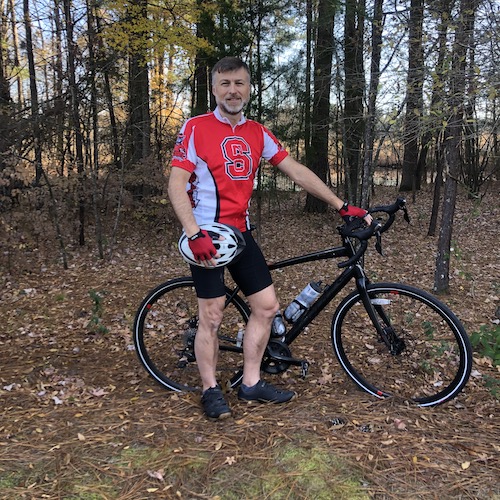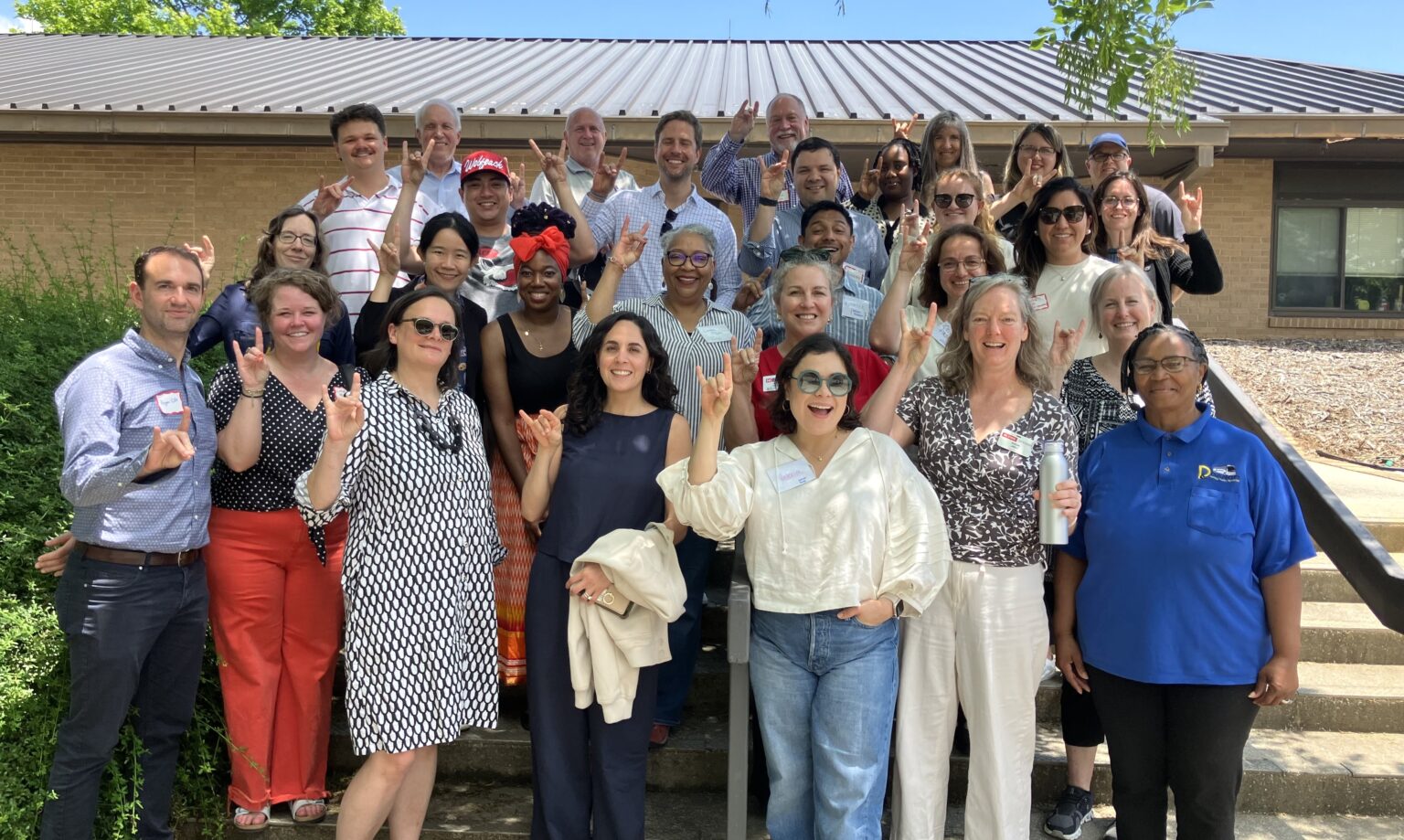After 25 years in a corporate setting, Tom Dow began scanning the horizon for opportunities to think more deeply about the problems faced by practitioners. He found what he was looking for at the Poole College of Management. As a popular lecturer of accounting and a self-proclaimed story enthusiast, he is dedicated to helping accounting students bring their ideas and solutions to life.
Q&A with Tom Dow
What inspired you to pursue a career in accounting?
Roots in accounting run deep in my family. My grandfather was a company controller, and when I was a boy, I was fascinated by the stories he told me about his work. I also have two cousins, an aunt and an uncle who are in accounting roles. I was always intrigued by how accounting could help solve so many different business problems, so it seemed inevitable that I would be drawn to the subject when I entered business school. After just a few courses, something clicked, and I began to build what would become a fulfilling career in the profession.
What do you enjoy most about accounting?
Accountants get to tell a story. With the rapid rise of data analytics software, we can share numbers and interpret their meaning in more ways than ever before. The most rewarding moments of my career are spent getting together with other people, whether they are managers, executives, board members or students; and piecing together what the data tells us about a business. Telling these stories helps inform the actions of organizations and individuals, and that’s an exciting role to play.

What were the most meaningful aspects of your 25 years in corporate?
My favorite thing about working in the corporate world was being part of a team and working toward common goals. We celebrated each other’s victories and helped one another up after setbacks.
One of my proudest accomplishments was also quite bittersweet. To close out my corporate career, I helped sell Cormetech, where I served as the chief financial officer. I essentially worked myself out of a job. The team and I had worked tirelessly to grow the company to this point, so while it was exhilarating to achieve our hard-won goals, it was difficult to say goodbye when we had been together since the beginning of that long journey.
How would you describe your teaching style at Poole?
I go back to the concept of storytelling. Textbook content can be overly theoretical and tedious at times, so illustrating those concepts through real-world stories is key. Coming from both accounting and executive roles, I’m grateful to have a variety of corporate experiences to draw from in class. Often, I present my students with examples of something that went wrong, which sparks engaging discussions about why a particular strategy failed to achieve a particular goal.
I also try to be as realistic as possible in preparing students for their next career steps. In classroom problem sets, we may be given a set of facts or assumed information to arrive at one or two correct answers. But in practice, there is a lot of uncertainty. You must be able to analyze the information and make professional judgments based on those analyses. I do my best to present students with ample opportunities to exercise critical thinking in the classroom.
What advice do you have for students who are considering a career in accounting?
Accounting is one of the most foundational skills you can carry with you throughout your professional career, whether you stay in the profession or pivot to other fields. Many of my accounting colleagues and students have gone on to become entrepreneurs, CEOs, investment bankers, data scientists and many more. Accounting is the language of business, and understanding it provides you with a fundamental skillset that sets up you for success.
In addition to providing a technical skillset, accounting helps you develop as a communicator. You may be able to solve the most complicated problems and build the fanciest graphs, but you can’t add value or effect change unless you can clearly articulate your findings to teammates and stakeholders. Learn to share your ideas in accessible and engaging ways. Writing polished emails and honing your presentation skills may seem like small tasks in a classroom setting, but they carry huge weight in the working world.
How do you enjoy spending your time outside the classroom?
I’m happy anywhere I can be outdoors and active. Between kayaking, hiking and biking, I appreciate any chance to breathe in fresh air and relieve the natural stress that comes from hard work. By taking time to rest and engage in personal projects, I’m able to return to the classroom and my office with a clearer mind each week, re-energized to learn and live alongside stellar colleagues and students who work to translate the stories behind numbers into real-world impact.
- Categories:



